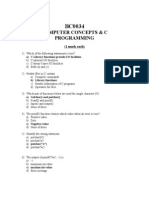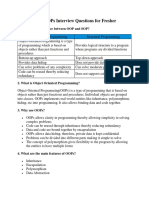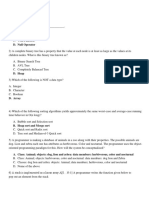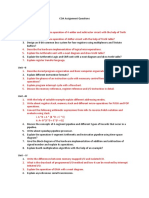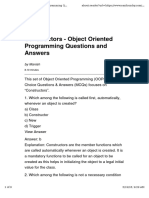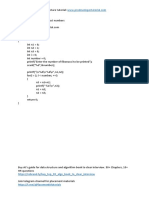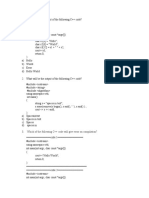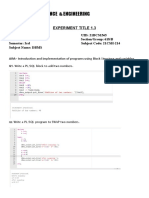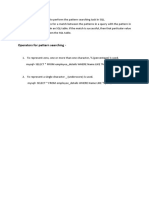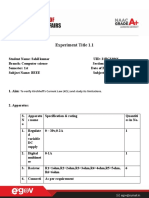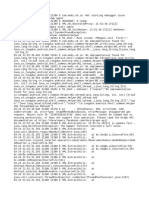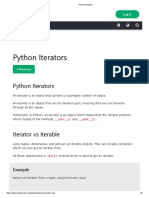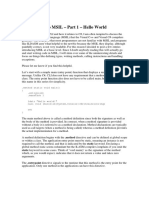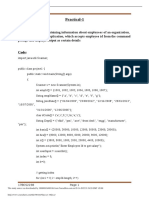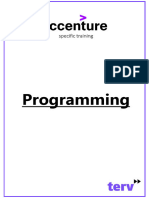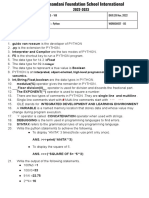0% found this document useful (0 votes)
3K views24 pagesC++ Output Based Questions - Set 2 CL1.1C++
The document provides 16 questions related to object oriented programming in C++. For each question, it predicts the output of a code snippet and provides the answer. It encourages readers to practice the questions for exam preparation and provides contact details to get help with any doubts regarding the questions.
Uploaded by
Lakshay ChauhanCopyright
© © All Rights Reserved
We take content rights seriously. If you suspect this is your content, claim it here.
Available Formats
Download as PDF, TXT or read online on Scribd
0% found this document useful (0 votes)
3K views24 pagesC++ Output Based Questions - Set 2 CL1.1C++
The document provides 16 questions related to object oriented programming in C++. For each question, it predicts the output of a code snippet and provides the answer. It encourages readers to practice the questions for exam preparation and provides contact details to get help with any doubts regarding the questions.
Uploaded by
Lakshay ChauhanCopyright
© © All Rights Reserved
We take content rights seriously. If you suspect this is your content, claim it here.
Available Formats
Download as PDF, TXT or read online on Scribd
/ 24





